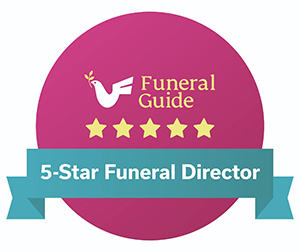Losing a loved one can be a distressing and emotionally challenging time. And, if you weren’t expecting it, then you may find yourself in shock as well as suffering from the sadness and grief.
You may also find that you’re left with not knowing what to do, as you may have never suffered a bereavement before. So, S. Stibbards & Sons have created this guide, so you know what you need to do following the death of a loved one.
What To Do In The First Instance
If a loved one dies at home or in a care home and their death was expected, then you need to contact their GP in the first instance. They’ll issue a medical certificate and a formal notice if they know what caused the death. You may need to then go the GP surgery at a later date to collect the certificate and notice.
If the death occurs in a hospital, then a doctor or nurse will contact the next of kin (this may or may not be you). If you’re the next of kin, you’ll need to collect any of their personal belongings. The hospital will keep your loved one’s body in their mortuary until a request for its removal has been made (usually by a funeral director).
A Coroner’s Role Following Death
If your loved one died and was not visited by a professional medical practitioner during their final illness or died of an unnatural cause or during an operation, in this case, it must be investigated by a coroner.
A doctor will normally contact a coroner in these circumstances who will then need to confirm what caused the death.
Get Help and Advice From a Local Funeral Director
One of the other things you should do following a loved one’s passing is to get in touch with a local funeral director. They’ll be able to help you with every aspect of arranging a funeral and advise you on what you need to do following the death.
A local funeral director will make the incredibly emotional time a bit easier. If your loved one didn’t have a pre-paid funeral plan in place or state their preferred funeral director in their Will, then a GP will be able to help you by recommending one.
Looking After Your Loved One’s House
If you loved one lived in a house alone, then you’ll need to take some steps to protect it following their passing. It can be challenging enough without something happening to their property.
Therefore, you’ll need to ensure that all of the doors and windows are closed and locked. If the death occurs during the winter months, you’ll need to ensure that the heating is left on to prevent any pipes from freezing.
Registering The Death
Following the passing of your loved one, you must register their death with the Registrar of Births and Deaths for the area where the death occurred within 5 days. Here’s what to expect when registering a death.
What The Registrar Will Do
When you register the death, you’ll be asked a set of specific questions by a registrar who will use your details to update official records. The meeting normally takes about 30 – 40 minutes, and this will also be a chance for you to get information about the bereavement support services that are available in your area.
The interview is very straightforward and consists of a set of simple questions which are then entered into an online database. You’ll receive a printed out version for you to check over towards the end of the interview.
Once you’re completely happy that everything is correct, you’ll be asked to sign the printed version with a pen that is provided by the registrar. This pen will be filled with a special type of ink that doesn’t fade and can’t be erased. This ensures a permanent record of your loved one’s death.
The Documents You’ll Receive
Towards the end of the interview, you’ll receive a few documents that are required to finalise your loved one’s funeral and to arrange probate. These are:
- A certified copy of the death certificate.
- A certificate of notification.
- A certificate for your loved one’s burial or cremation.
The People and Organisations You Should Inform
When you’re grieving the loss of a loved one, it can be easy to forget to about informing the different people and organisations they may have had ties with. But it’s important to do so as soon as you have a chance. Firstly, you’ll need to tell friends and family members. But you’ll also need to contact the following to inform them that your loved one has died:
- Their employer if they were still working at the time they died.
- Their school, college, or university if they were studying.
- The Post Office to arrange the redirection of mail if needed.
- Their car insurance provider.
- Their credit card/store card providers.
- Local government offices that provided your loved one with housing benefits, council tax or disabled parking permits.
- The passport agency.
- Any banks they may have had accounts with.
- TV/phone and Internet provider.
Look After Yourself
Following the death of a loved one, you may be left wondering how you’re going to cope. You may find it difficult to manage simple day-to-day activities such as sleeping and eating. Things like going to work or event social events may be especially difficult.
Here’s some ways to take care of yourself that you may find helpful. It can also help to recognise the feelings you might be experiencing and then get support from your family and close friends.
Sleeping
Coping with grief can make you feel exhausted. If you have continuous trouble with getting a good night’s sleep, you can visit your doctor. However, you can try other things such as exercising daily, avoiding alcohol and high levels of caffeine, and going to bed at around the same time each night.
Eating
You may find that you’ll lose your appetite when grieving. If this does happen, it may start to return once you have taken the time to process your thoughts. Other people may turn to unhealthy food such as takeaways and not feeling like cooking themselves.
Cry If You Need To
Crying is a way of reducing stress and soothing your body. And it’s a completely natural reaction when coping with grief and loss. It doesn’t matter when the death occurred, if you feel like you need to cry then let it out and try not to question it.
Frequently Asked Questions
When a loved one dies, you may be left with lots of questions at a time of emotional struggle. This is why we have included some of the most frequently asked questions (and answers) below.
Are Bereavement Support Groups Helpful?
Yes, bereavement support groups can be very helpful. When people are grieving, they feel like the world has moved on without them. Face to face support groups can provide you with a safe space to talk about your loss and feeling with other people who’re experiencing the same thing.
How Long Does Grief Last For?
Unfortunately, there’s no simple or clear answer because every griever is different and unique. It usually depends on a person’s personality, their previous experiences, and their relationship with those who’ve died.
What is Anticipatory Grief?
Anticipatory grief is a natural reaction to an upcoming or expected loss event. Although this can sound rather horrible, it can be an important part of the overall grieving process.
What Are The Signs of Grief?
On an emotional level, those who’re grieving can experience anxiety, sadness, numbness, depression, guilt, or frustration. The physical symptoms of grief can include pain in the chest, dizziness, and tightness of the throat.
Do Children Experience Grief?
Yes, they do. If children are old enough to feel love, then they’re old enough to feel grief. Bereavement support groups are very helpful for children since they’re with other children who have experienced a loss too.
How Do I Deal With The Death of a Child?
Losing a child is one of the most devastating experience any parent could face. Nothing can take away the pain or fill the child’s place in your heart. Parents often feel guilty and responsible for what happened even if they were told that there was nothing they could do to prevent the death.
Acknowledging your child’s passing as well as the lost dreams you had for their future is an important part of the grieving process. It’s also very comforting to share the way you feel with others who had similar losses.
Other Useful Resources
If you’re going through a difficult time and in need of any additional information, there’s many organisations who can provide you with practical advice and emotional support. So, to further help you, we’ve compiled a list of some that you might find useful.
This government website has guides on what to do when a loved one dies. This includes how to deal with their finances and information about what financial support could be available to you.
Samaritans have a helpline where they can offer you non-judgmental and confidential support. Their line is open 24 hours a day, 7 days a week and is for people who are going through stress and despair.
The Citizens Advice Bureau offer confidential and impartial advice when it comes to dealing with death and Wills. Their advice is completely free.
The Bereavement Advice Centre has a website that contains lots of practical advice when it comes to dealing death, funerals, and bereavement. However, please note that the information on their website only relates to England and Wales.
S. Stibbards & Sons Are Here For You
S. Stibbards & Sons have five generations of experience and have been serving the local community since 1867.
This means every little detail matters to us just as much as it matters to you. Our close connection with families has allowed us to build and run one of the most well-respected funeral directors in the South-East.
If you have recently lost a loved one and need help with the processes we have discussed, then please get in touch with our friendly and compassionate team by visiting our contact page today.







